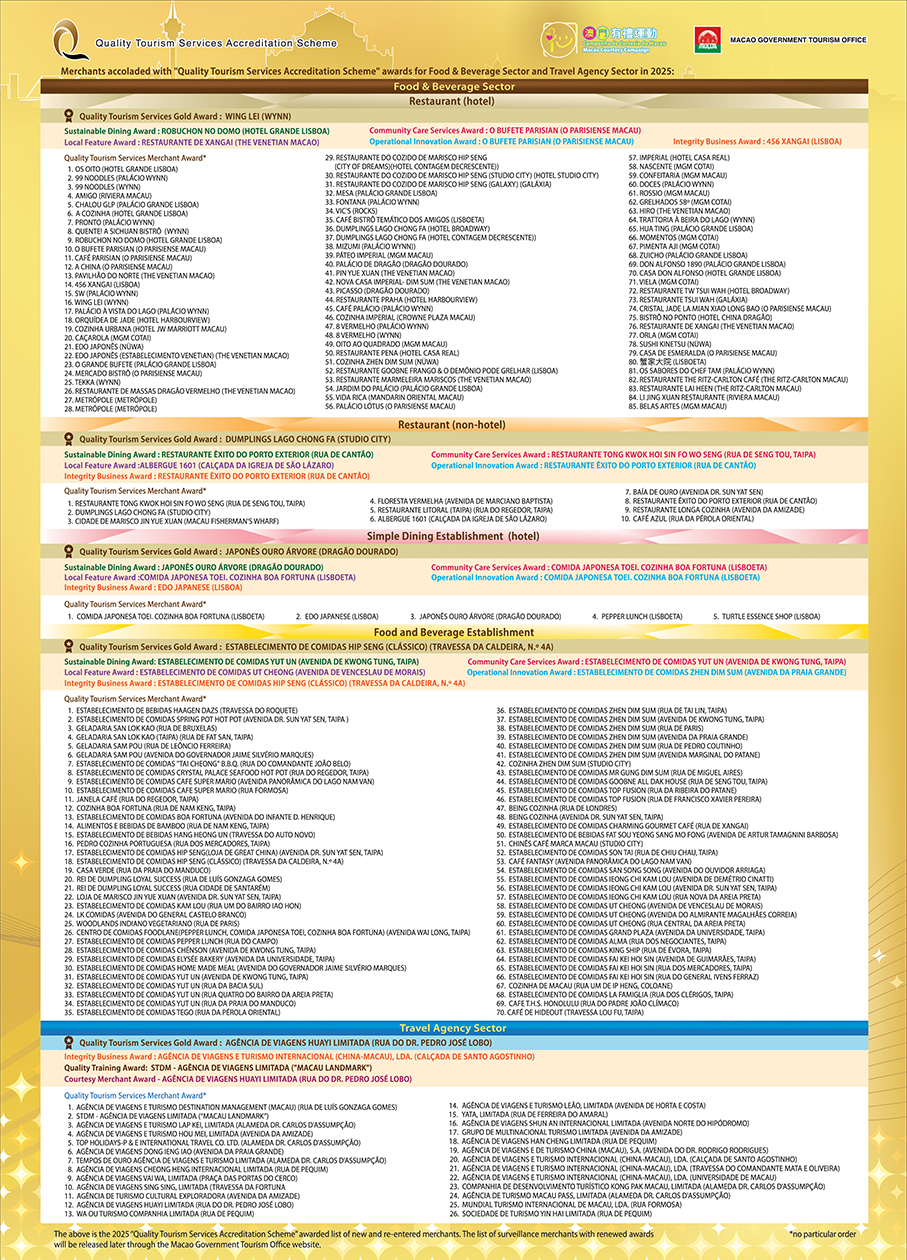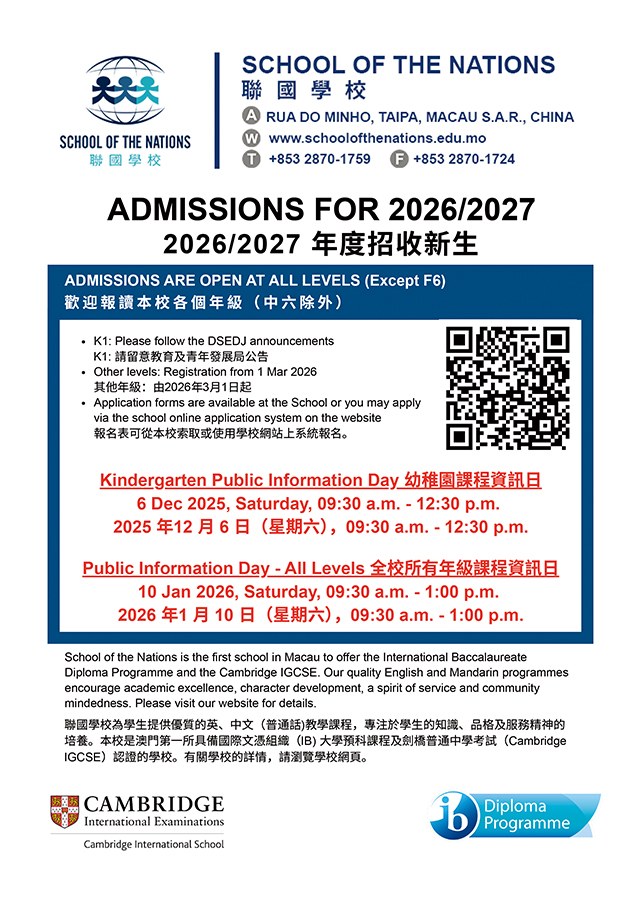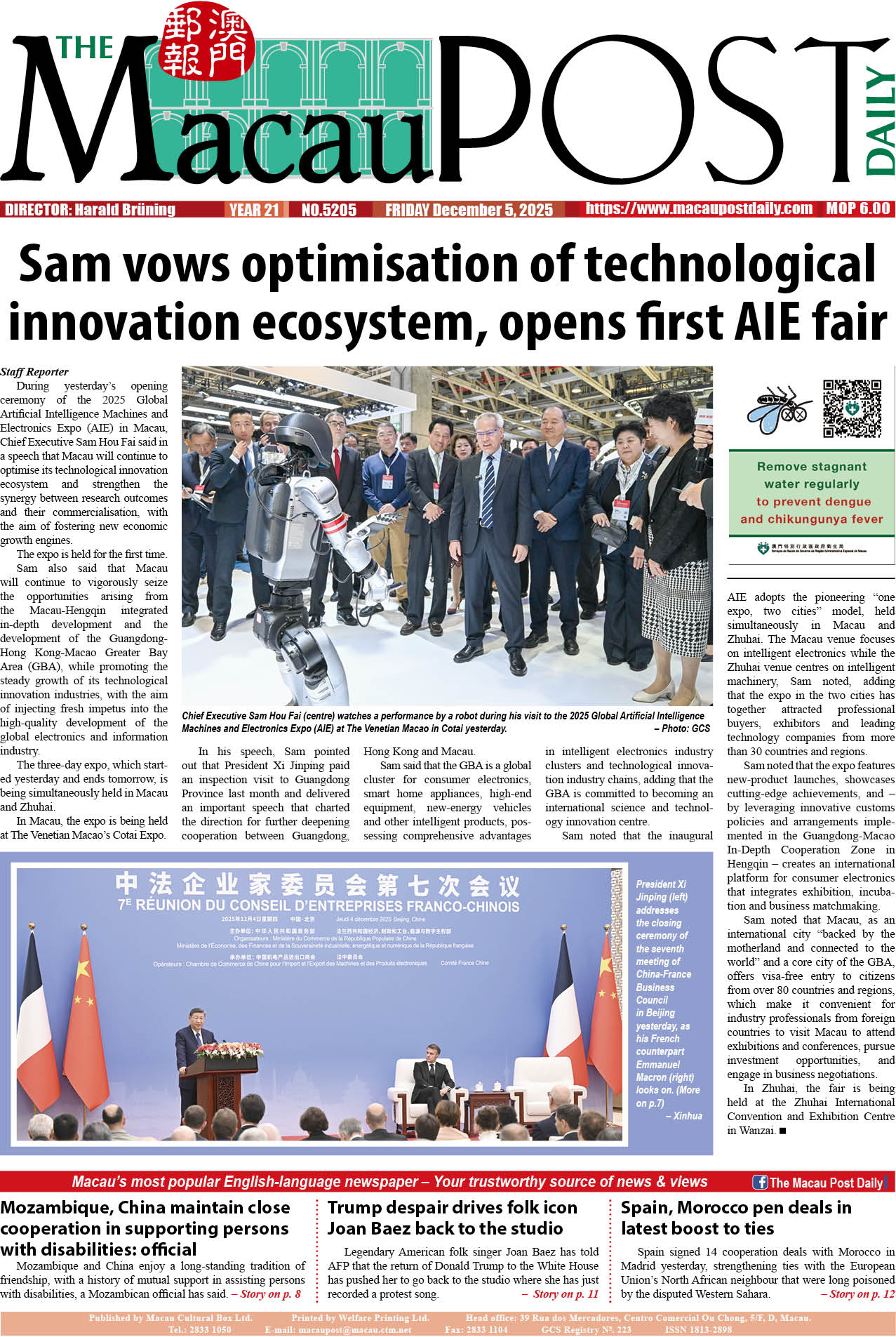I am sure that most, if not all, residents have become so used to the government’s annual wealth-sharing scheme, now in its 18th year, that they regard it as an acquired right.
Some low-income citizens, such as one-parent families and the elderly, have even become dependent on it.
Of course, the so-called “cash handout” is not an acquired right, but the pecuniary consequence of a specific political decision by the government to let residents partake in their city’s wealth and also, in response to a temporary economic trough that impacted Macau less than two decades ago, to tide those in dire straits over.
What I do remember from my Public Law classes at university, an acquired right refers to a legal entitlement that a person or entity has obtained through lawful means, such as contract, statute, or very long-standing practice, and which cannot be arbitrarily revoked or altered without due process or compensation.
This is not the case here.
The government of Macau’s first chief executive, Edmund Ho Hau Wah (1999-2009), launched the scheme in 2008 in response to the local impact of the global financial crisis that year. It got off the ground with 5,000 patacas for permanent residents and 3,000 patacas for non-permanent residents.
Notably, the scheme was specifically based on one’s formal residency status – not on nationality, age (even newborns have been included in the scheme since its inception) or place of domicile. Consequently, anyone holding a Macau ID card (BIR) has been entitled to the handout, irrespective of where they live. Since 2019, the scheme’s annual disbursements have amounted to 10,000 patacas for permanent residents and 6,000 patacas for non-permanent resident.
For quite a few years, the point that Macau ID card holders can benefit from the scheme without actually living in Macau – some of whom, I have been told, haven’t even visited Macau for years on end – has upset quite a few residents, the argument being that those actually not residing here do not deserve receiving the handout, as they, or at least the large majority of them, do not contribute to Macau’s creation of wealth and, consequently, should not share in it.
Last year, according to official statistics, 717,018 permanent residents and 30,850 non-permanent residents were entitled to receive 10,000 patacas and 6,000 patacas each respectively.
According to previous media reports, some 48,000 “cash handout” beneficiaries living outside Macau received their cheques by post last year, or 6.4 percent of the total number of recipients.
However, this figure fails to show the whole picture as, I have been told, some of those who do not live in Macau have been using a local bank account arranged or a postal address provided by a relative or friend to receive their “cash handouts” every year.
The new government under Chief Executive Sam Hou Fai held two hearings earlier this month to gauge public opinion on its plan to reform the scheme.
According to what has transpired from the hearings, they produced two major suggestions – one to replace the “cash handout” with a consumption card or voucher, and the other to limit the scheme’s beneficiaries to those who stay at least 183 days a year in Macau.
What I have heard from a different range of members of different strata of civil society is that the proposal to substitute the “cash handout” with a consumption card or voucher scheme is a damp squib, while the proposed 183-minimum stay in Macau appears to be supported by most local residents. Of course, this is merely based on anecdotal evidence.
My feeling is that the bulk of local residents are convinced that “cash is king”. This is understandable, particularly during the global economy’s current turmoil and also because cash, the most liquid form of money, grants its holders the advantage of immediate and freely customisable spending power. That’s what residents, as far as I know, love about the “cash handout” – one can spend it in Macau or elsewhere (nowadays most likely in Zhuhai) on whatever one likes, needs or wants, including a holiday in Sichuan, Taiwan or Thailand, or just put the money away for a rainy day. I know of families who, thanks to the handout, have been able to visit a raft of places in the Chinese mainland, trips that they would hardly have been able to afford without it. They told me that their trips reinforced the love for their country.
The wealth-sharing scheme has also strengthened Macau residents’ pride in their city. After all, as far as I know, there is no other country and region in the world that offers their citizens the chance of sharing in their economy’s wealth by disbursing cash among them.
By all means, there are reasons for the local government’s perceived generosity – Macau boasts one of the world’s highest per capita GDPs and it is its top gaming destination. Besides, the financial reserves of the Macau Special Administrative Region (MSAR) rose by 183 million patacas month on month in March, reaching 623.5 billion patacas, as announced by the government in the Official Gazette (BO), apart from the fact that Macau has no public debt. Describing Macau’s financial situation as robust is almost the understatement of the century.
Last year, the government set aside 7.36 billion patacas for its cash handouts, or about 7.0 percent of its budgeted expenditure of 105.94 billion.
There are, certainly, different ways of assessing the benefits of the “cash handouts” – from an individual resident’s perspective, his or her preference for the “cash is king” notion is understandable, while based on an economist’s expected focus on aggregate trends, the idea of persuading the scheme’s beneficiaries to spend their “cash handouts” by consuming locally (which, perhaps, could include Hengqin, considering the government’s determination to speed up the integration between the special administrative region and the adjacent in-depth cooperation zone) is comprehensible. But, I am quite sure, the majority of local residents prefers a “marching-to-ones-own-drum” approach towards the scheme.
While most residents appear to back the 183 minimum number of days a resident would have to spend in Macau in order to benefit from the scheme, the devil is in the details.
If finally implemented, exceptions would certainly be required, such as for students enrolled outside Macau, those working elsewhere but for the benefit of Macau such as tourism promoters, academics and businesspeople as well as – and now it’s getting even trickier – local retirees who have chosen to spend their golden years in another place.
Reportedly, some community representatives have proposed that local retirees living out their twilight years in the Chinese mainland should be exempted from the 183-day requirement.
Well, for instance, what about those choosing to retire not in the Chinese mainland but in Hong Kong or Taiwan for family reasons? Both areas, like Macau and the Chinese mainland (of course), are inalienable parts of the People’s Republic of China (PRC), too. On this point, I agree with several friends who raised the issue with me last week. Excluding local residents who are enjoying their retirement in Hong Kong or Taiwan would, ultimately, be a violation of the “One China” principle. The United Nations, for example, officially regards Taiwan as a province of China, and all the 182 countries that have established relations with the PRC (94 percent of the UN member states) recognise this fact.
I think that any Macau resident relishing his or her retirement anywhere on national territory should continue to be able to benefit from the scheme.
There should, I believe, also be exceptions for local retirees living in foreign countries who could prove that in the run-up to their sunset years they contributed to Macau’s wealth creation, such as by working here for, let’s say, at least 20 years, or even less for those who benefited Macau’s development in a particularly notable way.
Where there’s a will, there’s a way forward, but personally I’m still on the fence.
I believe that the government might need more time to tackle this issue which, let’s face it, is rather sensitive, in an election year (Legislative Assembly polls are slated for September 14) in particular. If not handled carefully, it could influence the outcome in an unintended way…
– Harald Brüning











